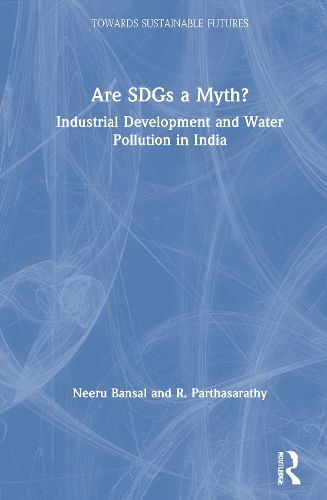Readings Newsletter
Become a Readings Member to make your shopping experience even easier.
Sign in or sign up for free!
You’re not far away from qualifying for FREE standard shipping within Australia
You’ve qualified for FREE standard shipping within Australia
The cart is loading…






This book discusses the continued emphasis on development gains in India’s national policies and its quest to meet sustainable development goals. It offers an analysis of the laws and infrastructure for environment protection in the country and their ineffectiveness in dealing with the water pollution which has had dire consequences on India’s ecological landscape.
The book, while highlighting the need and importance of industrial development, argues for sustainable measures to moderate and monitor such developmental efforts in light of severe environmental degradations. Focusing on the state of Gujarat, it looks at published and un-published data on industrial development and water pollution levels and data obtained via applications filed under the Right to Information Act. It also offers a detailed account of the concentration of red industries which release the most hazardous pollutants and their effects on the environment. The authors look at the data from a theoretical and empirical perspective, offering insights into how the checks and balances levied by the state have been violated. They highlight the patterns and trends which emerge from the study of these developmental efforts and underline the need to improve the effectiveness of policy instruments, and the need to diversify the existing mechanisms.
The book will be of great interest to students and researchers of environment and development studies, public policy, sociology, law and governance, human ecology and economics.
$9.00 standard shipping within Australia
FREE standard shipping within Australia for orders over $100.00
Express & International shipping calculated at checkout
This book discusses the continued emphasis on development gains in India’s national policies and its quest to meet sustainable development goals. It offers an analysis of the laws and infrastructure for environment protection in the country and their ineffectiveness in dealing with the water pollution which has had dire consequences on India’s ecological landscape.
The book, while highlighting the need and importance of industrial development, argues for sustainable measures to moderate and monitor such developmental efforts in light of severe environmental degradations. Focusing on the state of Gujarat, it looks at published and un-published data on industrial development and water pollution levels and data obtained via applications filed under the Right to Information Act. It also offers a detailed account of the concentration of red industries which release the most hazardous pollutants and their effects on the environment. The authors look at the data from a theoretical and empirical perspective, offering insights into how the checks and balances levied by the state have been violated. They highlight the patterns and trends which emerge from the study of these developmental efforts and underline the need to improve the effectiveness of policy instruments, and the need to diversify the existing mechanisms.
The book will be of great interest to students and researchers of environment and development studies, public policy, sociology, law and governance, human ecology and economics.